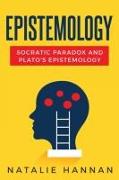Socratic Paradoxes and Plato's Epistemology
BücherAngebote / Angebote:
Plato's "Socratic paradoxes" state that no one does wrong voluntarily and that virtue is knowledge. Outside of moral psychology, the importance of the Socratic paradoxes has been neglected. My dissertation defends two related proposals that showcase their importance in ancient epistemology. The first proposal is that they are a major motivation for Plato to develop a unique view of epist¿m¿ (knowledge or understanding) as an infallible and robust cognitive power that is set over a special class of objects. The second proposal is that understanding the influence of the Socratic paradoxes can help us see how epist¿m¿ improves our doxai (beliefs or opinions) about the world around us, solving a long-standing problem in Plato's epistemology. I will start by examining the Hippias Minor, in which we see Plato seeking to embrace the Socratic paradoxes (rather than already assuming them) and looking to develop his notion of epist¿m¿ as a result. I will then move to the Protagoras, in order to show Plato proceeding with this project by embracing epist¿m¿ as something that produces good action and involves measurement. I will show the Protagoras' picture to be fully developed in the Republic, in which epist¿m¿ emerges as something that measures the truth of our doxai and has clear practical benefits as a result. Finally, I will compare this account to Aristotle's treatment of virtue and epist¿m¿ in the Eudemian Ethics, in order to consider the legacy of the Socratic paradoxes after Plato.
Folgt in ca. 10 Arbeitstagen
